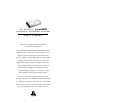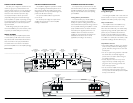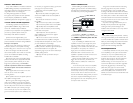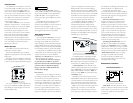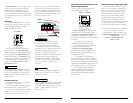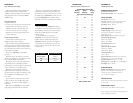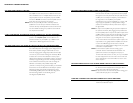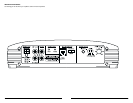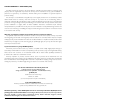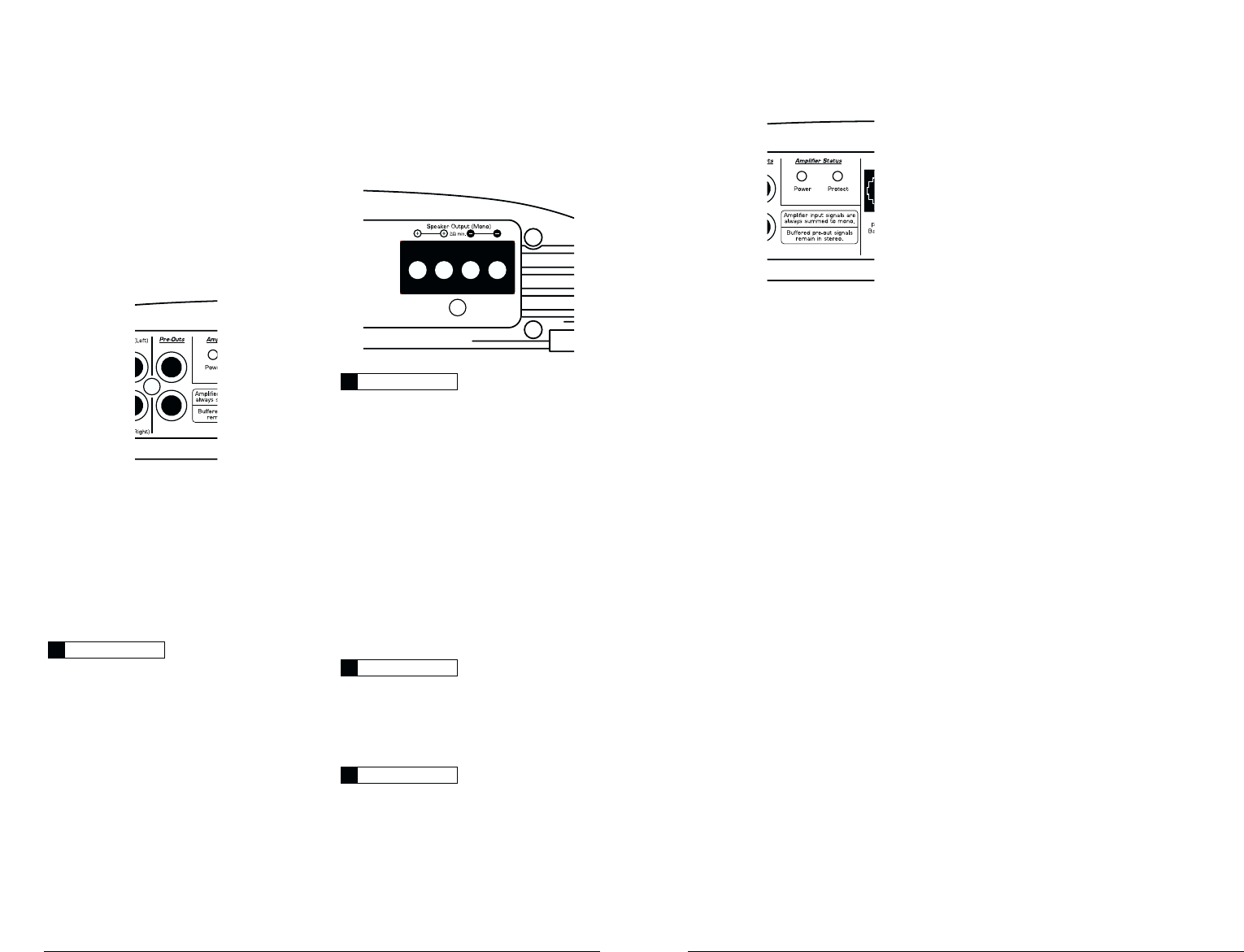
AMPLIFIER STATUS INDICATOR LIGHTS /
PROTECTION CIRCUITRY
There are two status indicator lights on the
input / control end of the amplifier:
1) “Power” (Green): lights to indicate that the
amplifier is turned on and operating normally.
2) “Protect 1 - Flashing Light” (Red): flashes to
indicate that the amplifier’s Level 1 protection
circuitry has been activated for one of the following
two reasons.
a) The impedance of the speaker(s)
connected to the e1800D is less than 2Ω.
b) The vehicle’s charging system voltage has
dropped momentarily below 8.2 volts.
3) “Protect 2 - Constant Light” (Red):
illuminates to indicate that the amplifier’s Level 2
protection circuitry has been activated for one of
the following two reasons.
a) The amplifier has exceeded its safe
operating temperature.This causes the amplifier to
reduce power capability in order to protect its
circuitry. When the amplifier’s temperature drops to
a safe level, the red “Protect” indicator will shut off
and the amplifier will return to normal operation.
b) The amplifier protection circuitry has
detected a dangerously low charging system
voltage (consistantly below 8.2 volts).When the
problem is eliminated, the amplifier will return to
normal operation.
SERVICING YOUR JL AUDIO AMPLIFIER
If your amplifier fails or malfunctions, please
return it to your authorized JL Audio dealer so
that it may be sent in to JL Audio for service.
There are no user serviceable parts or fuses
inside the amplifier.The unique nature of the
circuitry in the JL Audio amplifiers requires
specifically trained service personnel. Do not
attempt to service the amplifier yourself or
through unauthorized repair facilities.This will not
only void the warranty, but may result in the
creation of more problems within the amplifier.
If you have any questions about the installation or
setup of the amplifier not covered in
this manual, please contact your dealer or the
JL AUDIO Technical Department for assistance:
(954) 443-1100
9:00 AM – 5:30 PM Eastern Time,
Monday – Friday
JL AUDIO e1800D 9
2) Remote Bass Port: This port allows you to
connect an optional remote boost knob (sold
separately, JL Audio Model RBC-1) that can be
mounted in the front of the vehicle. With the
RBC-1 connected, the boost is no longer limited to
0 or +6 dB, allowing a range of 0 - 12 dB of boost
to be selected.
PRE-OUTS
The e1800D’s “Pre-Outs” connectors output
unprocessed (pass-through) left and right channel
preamp level signals, permitting connection of
additional amplifiers in a system.
When using either the line level inputs (RCA
input connections) or the “High Level Inputs”
(four-pin connector), the output signals are identical
to the input signals. If the “High Level Inputs” are
used, the signal present at the “Pre-Outs” can still
be sent to another JLAudio amplifier. In either case,
the “Pre-Outs” signals are not affected by any
settings in the “Amplifier Controls” or “Bass
Boost Controls” sections.
If you plan to use the “Pre-Outs” to feed a
stereo amplifier, you must connect a stereo signal to
the input of the amplifier. A mono signal into the
amplifier will result in a mono signal out of the
preamp output.
SPEAKER OUTPUTS
The e1800D’s speaker outputs are designed to
accept 8 AWG - 16 AWG wire.
The e1800D is designed to deliver power into
speaker loads equal to or greater than 2Ω.
To connect the speaker wires to the amplifier,
first back out the set screws on the top of the
terminal block, using the supplied 2.5 mm hex
IMPORTANT
!
wrench. Strip 1/2 inch (12 mm) of insulation from
the end of each wire and insert the bare wire
into the terminal block, seating it firmly so that no
bare wire is exposed.While holding the wire in
place, tighten the set screw firmly, taking care not
to strip the head of the screw.
Speaker loads below 2Ω nominal are not
recommended and may cause the amplifier to
initiate a protection mode and shut itself off.
You will notice that there are two “+” positive
connections and two “–” negative connections.This
is to facilitate multiple speaker wiring.The two
positive and two negative connections are
connected in parallel inside the amplifier. Connecting
two speakers, each to one set of positive and
negative terminals, will result in a parallel speaker
connection. If only connecting one pair of speaker
wires, it is not necessary to use both sets of
connections.
Do not attempt to “bridge”the outputs of this
amplifier with the outputs of a second amplifier,
including an identical one.
When parallel-connecting both positive and both
negative high-level input connections as described
above,make sure to connect negative (–) wires to
negative (–) wires and positive (+) wires to
possitive (+) wires.
IMPORTANT
!
IMPORTANT
!
IMPORTANT
!
8 JL AUDIO e1800D



